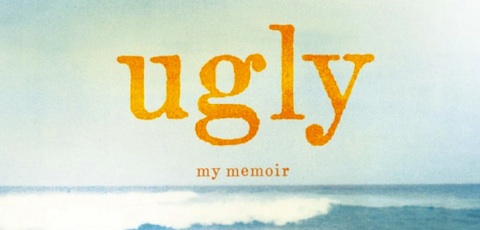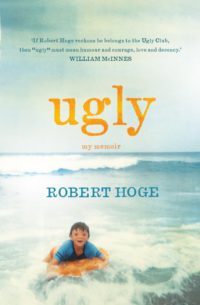
Ugly: My Memoir | Hachette
 When Robert Hoge was born he did not spend his first month bonding, as babies do, with his parents, in particular with his mother. Instead, he spent the first month and five days in the nursery in a hospital in Brisbane while his mother decided whether or not to bring him home to become a part of her family’s life.
When Robert Hoge was born he did not spend his first month bonding, as babies do, with his parents, in particular with his mother. Instead, he spent the first month and five days in the nursery in a hospital in Brisbane while his mother decided whether or not to bring him home to become a part of her family’s life.
Robert was a special baby; he was born with a tumor that had formed during the early development phase. It affected his appearance and was compounded by the fact that his legs were also deformed. By his own admission he became an instant member of the “Ugly Club”. Keenly aware of the limitations that Robert would experience socially, emotionally and physically, his mother soon became his biggest advocate and became determined that he would live a life similar to that of his siblings – with access to education, healthcare and everything else a growing child could want for to ensure a successful, fulfilling and happy life. Robert went home to meet his siblings and from then on was a member of the Hoge family.
Ugly: My Memoir is the intimate tale of Robert Hoge from birth through to university and on to his own journey of having a child. Not one for letting his physical disabilities interfere with living life, Ugly is a unique deeply moving story about Robert and his family, for it illustrates how disability can be overcome to an extent through the support and love of family and friends.
Robert is encouraged to take up opportunities as they arise and becomes involved in all aspects of social life that he can – indeed, sometimes too enthusiastically such as the time he took off his prosthetic legs to go faster down the toboggan ride which very nearly killed him. The narrative is engaging and honest and it is an enjoyable and interesting read, not just for the medical insights into operations to deal with his deformity, but for the picture it paints of growing up in suburban Australia where childhood and adolescent crushes are as abundant as late nights at university – in other words, his disability was never a disabling factor in him living and loving life.
Robert Hoge shows us that some forms of disability need not inhibit the ability of a person to achieve what they want in society. His strength of character and ability to go after what he wants proves this – in fact, his experiences make him more determined to achieve what he wants from life.
Without the strength and advocacy of his family and those who supported him along his journey in his early years things may have turned out differently for Robert. Even now, having a disability often means being subjected to opinion and actions that exclude a person from actively participating in relationships and situations within society. In Ugly, Robert illustrates the normality of his being – his disability is just on the surface, his strength and humility is what makes him a human being, and that’s something that all of us share regardless of our physical representations.

